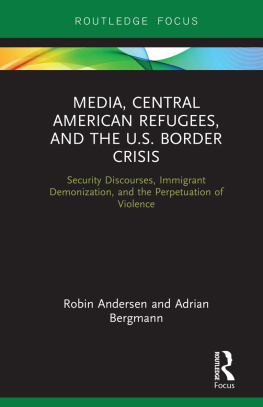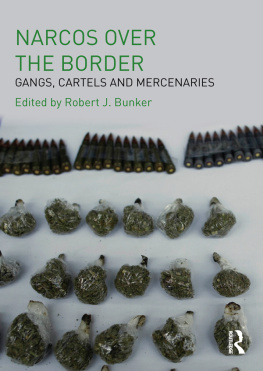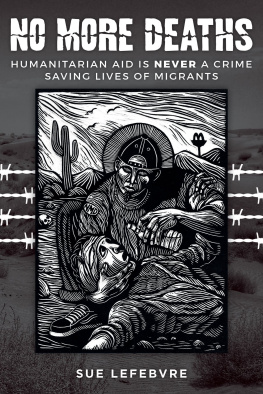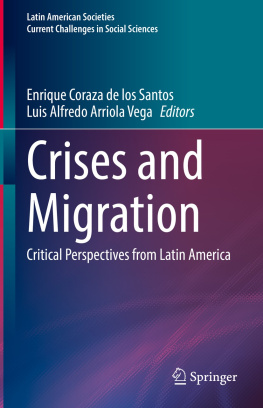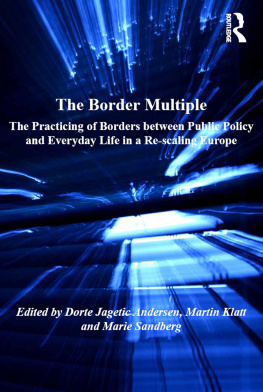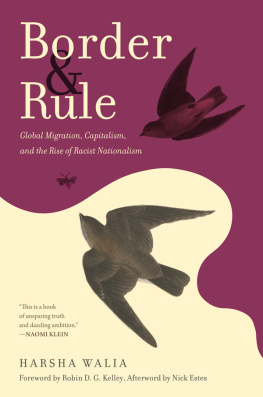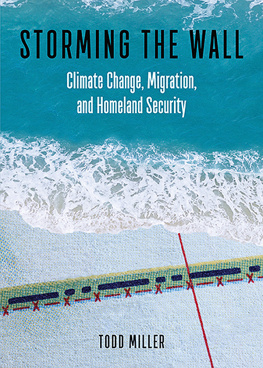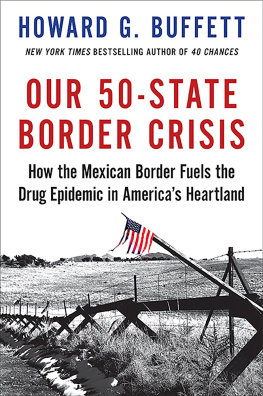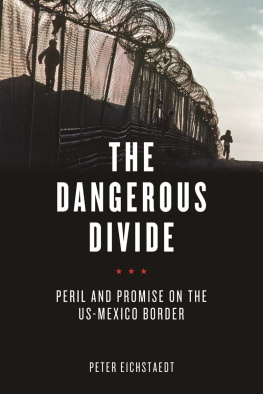Media, Central American Refugees, and the U.S. Border Crisis
This book identifies the history, conventions, and uses of security discourses, and argues that such language and media frames distort information and mislead the public, misidentify the focus of concern, and omit narratives able to recognize the causes and solutions to humanitarian crises.
What has been identified as a crisis at the border is better understood as an on-going crisis of violence, building over decades, that has forced migrants from their homes in the countries of the Northern Triangle. Authors Robin Andersen and Adrian Bergmann look back to U.S. military policies in the region and connect this legacy to the cross-border development of transnational gangs, government corruption, and on-going violence that often targets environmental and legal defenders. They argue that the discourses of demonization and securitization only help perpetuate brutality in both Central America and the United States, especially in the desert borderlands of the southwest. They offer ways in which stories of migrants can be reframed within the language of justice, empathy, and humanitarianism.
A compelling examination of language, media, and politics, this book is both highly contemporary and widely applicable, perfect for students and scholars of global media, political communications, and their many intersections.
Robin Andersen is Professor of Communication and Media Studies at Fordham University. She is the author of seven books and dozens of book chapters and journal articles, and writes media analysis and criticism for a variety of publications. She co-edited the Routledge Companion to Media and Humanitarian Action, and she is now editing the Routledge Focus on Media and Humanitarian Action series. She also recently published HBOs Treme and the Stories of the Storm: From New Orleans as Disaster Myth to GroundbreakingTelevision. Her 2006 book A Century of Media: A Century of War won the 2007 Alpha Sigma Nu Book Award from the Honor Society of Jesuit Colleges and Universities. She is a Project Censored Judge, and her article for Fairness and Accuracy in Reporting was recognized as a Top Ten Story for 2018.
Adrian Bergmann is a Research Fellow at the Institute of Historical, Anthropological, and Archaeological Studies of the University of El Salvador, where he conducts interdisciplinary research on peace building, conflict transformation, and violence reduction. Previously, he held the Chair of Peace Culture at Don Bosco University, and he has worked as a scholar and practitioner with street children, sex workers, gang members, police officers, and policy-makers. At present, he is focused on the transformation of dynamics of armed violence, the role of the state in the production of violence, and strategies for constructive engagement with gangs.
Routledge Focus on Media and Humanitarian Action
Robin Andersen and Purnaka L. de Silva
Humanitarianism is defined by assumptions that guide global solidarity, and posits that all peoples are part of the same humanity, no matter who they are, what they believe or where they live. These principles suggest that when media show the suffering of others, global publics respond in ways that facilitate disaster relief and help alleviate pain. But reactions to crises are also shaped by those who bear witness, tell the stories, share the data, and take the pictures of communities rocked by crises. Media content can also help those humanitarians who seek to address root causes of disasters, or it can serve to obscure the causes in many ways.
This series explores the multiple intersections between media and the work of humanitarian actors, and offers critical analysis of media, its uses, its coverage, how it has changed, and how it is misused in the representation of humanitarianism. Authors identify cutting-edge uses of new media technologies, including big data and virtual reality, and assess the conventions of older legacy media. For movements toward global peace, all peoples should be represented at the table and have their voices heard, including those outside the media spotlight.
Media, Central American Refugees, and the U.S. Border Crisis
Security Discourses, Immigrant Demonization, and the Perpetuation of Violence
Robin Andersen and Adrian Bergmann
For more information about this series visit: https://www.routledge.com/Routledge-Focus-on-Media-and-Humanitarian-Action/book-series/RFMHA
Media, Central American Refugees, and the U.S. Border Crisis
Security Discourses, Immigrant Demonization, and the Perpetuation of Violence
Robin Andersen and Adrian Bergmann
First published 2020
by Routledge
52 Vanderbilt Avenue, New York, NY 10017
and by Routledge
2 Park Square, Milton Park, Abingdon, Oxon, OX14 4RN
Routledge is an imprint of the Taylor & Francis Group, an informa business
2020 Taylor & Francis
The right of Robin Andersen and Adrian Bergmann to be identified as authors of this work has been asserted by them in accordance with sections 77 and 78 of the Copyright, Designs and Patents Act 1988.
All rights reserved. No part of this book may be reprinted or reproduced or utilised in any form or by any electronic, mechanical, or other means, now known or hereafter invented, including photocopying and recording, or in any information storage or retrieval system, without permission in writing from the publishers.
Trademark notice: Product or corporate names may be trademarks or registered trademarks, and are used only for identification and explanation without intent to infringe.
Library of Congress Cataloging-in-Publication Data
A catalog record for this title has been requested
ISBN: 978-0-367-18971-6 (hbk)
ISBN: 978-0-429-19959-2 (ebk)
Typeset in Times New Roman
by codeMantra
For the Migrants of the Northern Triangle, El Salvador, Honduras, and Guatemala forced to leave their homes.
Robin Andersen
The authors of this volume have been for years deeply involved in the topics presented here. Each has been on-the-ground, so to speak, in Central America, and their observations and analysis are bolstered by personal experiences. Many times those experiences have been troubling but have caused each to care deeply about the people caught in the destructive forces detailed here.
As a young graduate student studying the newsgathering practices of U.S. journalists, I followed a freelance news crew to El Salvador in the late fall and early spring of 19791980. My friend John Hoagland was working as a sound-tech for the news crew. He made the arrangements that allowed me to follow him and his colleagues, Carl and Kathy, in El Salvador. I watched as they, often bravely in the face of personal danger, gathered the elements they needed to construct TV news stories. Sometimes editors in the States would add footage that the crew had not shot or included in their visual feeds.
It was a period of mass demonstrations against a repressive regime that had just come to power promising reform. At that time, El Salvador was on the brink of civil war, yet there remained some small hope that change might occur without armed conflict. Over the time I was there, that political opening closed. I watched as peaceful demonstrators were attacked by military forces and paramilitary snipers.

